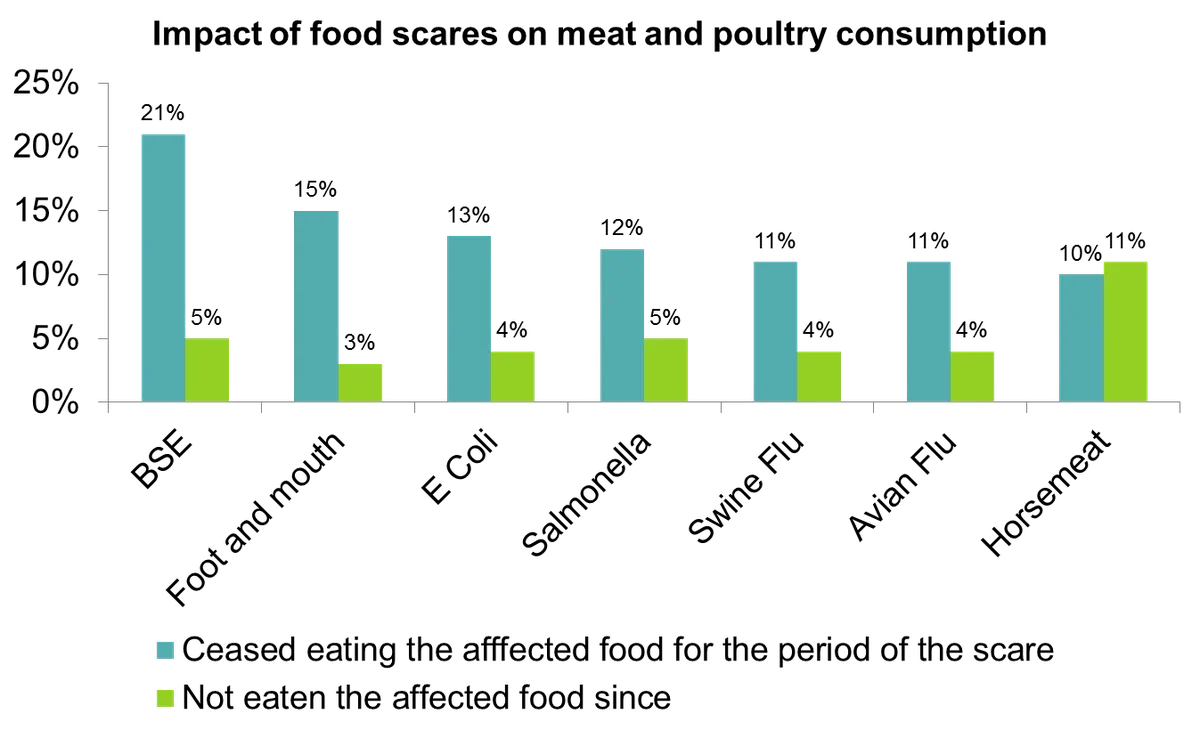A new report from YouGov shows that one in ten UK adults not eaten the foods implicated in the horsemeat scare since news of the contamination emerged in January.
The “Meat and Poultry 2013” study finds that 11% of consumers have stayed away from beef products over the past six months as a direct result of the scandal. The study reveals almost half (49%) the population were not affected by the saga.
However, YouGov’s research suggests that when compared against other food health scares, the horsemeat scandal had less of an immediate impact on consumer behaviour. While the BSE crisis saw over one in five (21%) consumers stop eating the affected food during the scare, foot and mouth 15% and E. coli 13%, the horsemeat scandal only saw 10% stay away from potentially contaminated meat. This places it behind is behind the salmonella (13%) scare, and the swine flu and avian flu (both 11%) outbreaks.

The research finds that despite an immediate spike in consumers avoiding the products during the scandals, few consumers avoid them in the longer term. One in twenty (5%) have not gone back to products associated with the BSE and salmonella scares, 4% still avoid affected meats from the E. coli, swine flu and avian flu outbreaks and 3% have not returned to affected foods following foot and mouth disease.
James McCoy, Research Director at YouGov, says: “Understandably, food contamination scares have an impact on consumers’ shopping habits. What is interesting is that although the horsemeat scandal was a huge story, of all of the recent scandals it had the lowest levels of people boycotting the affected products during the course of the scare. While a high proportion of people have not eaten beef since the story broke in January, this is likely to be caused by proximity to the scare and the findings about the other scandals suggest these numbers will fade with time – assuming, of course, there isn’t another scare.”









